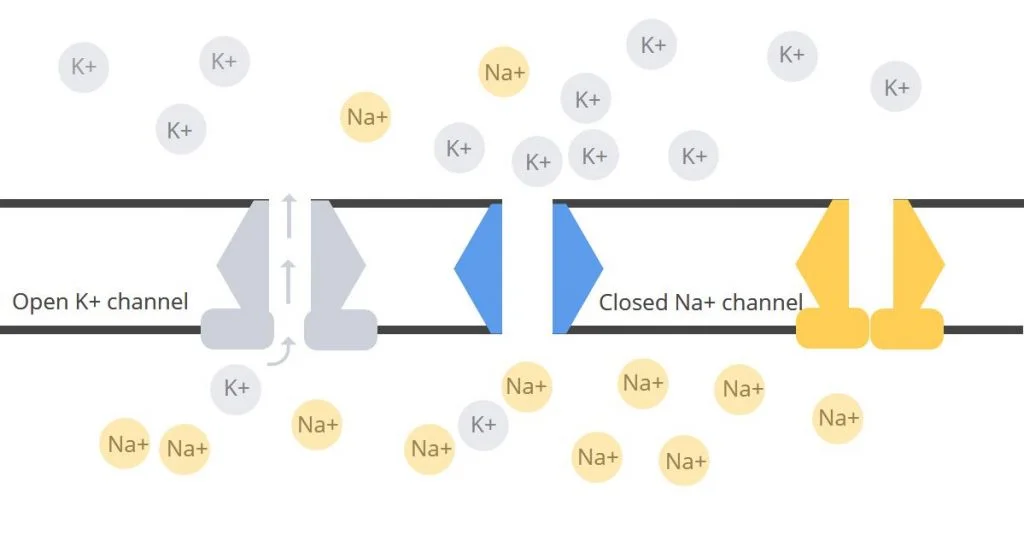Hyperpolarization is when a neuron’s membrane potential (mV) becomes more negatively charged (value less than 0) at a specific location on the cell membrane. As a result, the neuron is less likely to fire an action potential.

The permeability of the membrane to ions changes with depolarization (towards 0) or hyperpolarization (away from 0). The typical neuronal resting potential is approximately -90 mV for the extracellular fluid.
| Membrane potential | From -70 to -90mV |
| Charge | Negative charge increases |
| Major Cause | Opening of channels that let K+ out of the cel or CI- ions into the cell |
| Flow of Positive Ions | Out of cell |
| Na+ K+ ions | K+ ions flow out of the cell |
| Na+ channels | Closed |
| K+ channels | Opened |
Interesting comment in Khan Academy:

References:
Felten, D. L., O’Banion, M. K., & Maida, M. E. (2021). Netter’s Atlas of Neuroscience E-Book. Elsevier Health Sciences.